Six-axis motion simulator
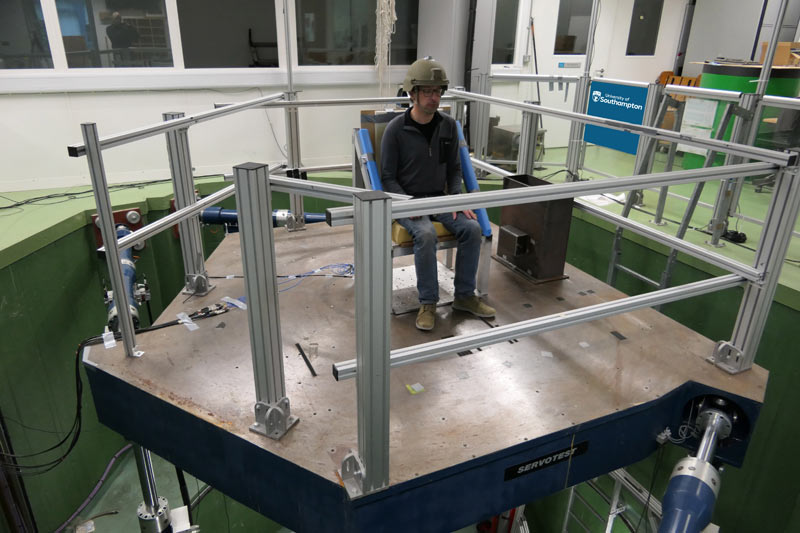
The ISVR six-axis motion simulator
The Six-Axis Motion Simulator can generate motion in all three translation axes, i.e. fore-and-aft, lateral, and vertical, and in all three rotational axes, i.e. roll, pitch, and yaw. The moving platform is approximately 3 metres by 2 metres and can support payloads up to 1000 kg. It is able to accurately reproduce motions in six axes with very low levels of background vibration, waveform distortion, and cross-axis motion.
The simulator has a maximum translational displacement of 1000 mm in the vertical direction and 500 mm in the horizontal directions. The maximum angle of rotation is about 20° in roll and pitch and about 10° in yaw. The simulator can supply translational and rotational accelerations up to 10 m/s2 and 5 rad/s2, respectively. The frequency range of motion is 0 Hz to 50 Hz.
The unique simulator design and motion performance allows faithful reproduction of vehicle motion. The simulator is used for research on the relative importance of motion, noise, seating, and the thermal environment in vehicles and interactions between these factors. Using the simulator, the effects of vibration on motion perception, seating dynamics, and postural stability are investigated for seated, standing and walking subjects.
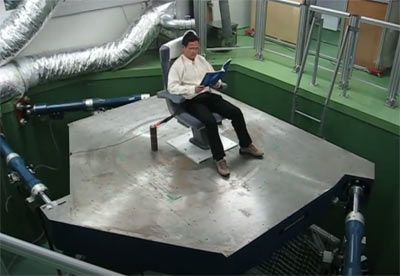 Video of the Six-Axis Motion Simulator in action
Video of the Six-Axis Motion Simulator in action
Research and consultancy
The Six-Axis Motion Simulator is used not only for University research projects but also for commercial testing and consultancy. We can carry out tests to national and international standards or to specific customer requirements.
Typical uses of the Six-Axis Motion Simulator include:
Comfort
Experimental studies to investigate the effects of sinusoidal, random, and multi-axis vibration and shock on the comfort of seated and standing people.
Simulation of environments
The vibration and sound recorded in road, off-road, rail, marine and aerospace environments can be reproduced to investigate aspects of comfort, performance, or health. The thermal conditions (temperature and humidity) and the décor, controls and displays in transport environments can also be simulated.
Perception
Absolute thresholds and difference thresholds for the perception of whole-body vibration.
Postural stability
Effects of oscillatory motions on the postural stability of standing and walking persons.
Biodynamic studies
For each of the six-axes of vibration, the transmission of vibration to the body and the mechanical impedance of seated, standing, and recumbent persons can be studied. Effects of posture, seating conditions, and other sources of variability on the transmissibility and impedance of the human body can be assessed. The collection of data needed to develop biodynamic models.
Seat testing
Measuring the transmission of vibration through seats with human subjects or with anthropodynamic dummies. The simulator is capable of all standardised vibration tests for vehicle seats, including suspension seats. The measurement of seat dynamic responses required for seat modelling.
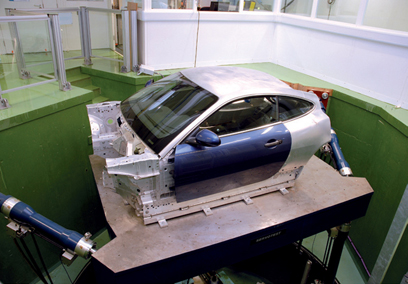
Simulation of transport environments
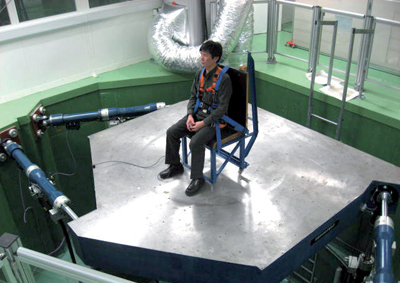
Studies of human vibration comfort and motion sickness
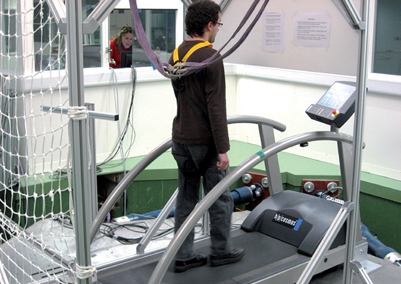
Studies of postural stability in moving environments
Outline specification
| Displacement: | 1 m vertical 0.5 m fore-and-aft 0.5 m lateral ~20° in roll and pitch ~10° in yaw |
| Acceleration: | ±10 m/s2 translational motion ±5 rad/s2 rotational motion |
| Frequency range: | 0 Hz to 50 Hz |
| Platform: | ~2 m by ~3 m |
| Payload: | ~1 tonne |
| Dynamic force: | ~10 kN |
Contact us
ISVR Consulting is an Enterprise Unit linked to the Institute of Sound and Vibration Research at the University of Southampton. We work with a wide range of industrial and commercial clients, public bodies, and government agencies in the UK and Europe.
ISVR Consulting carries out tests on behalf of clients and has a wide range of specialist vibration, acoustical and audio instrumentation and test equipment.
Get in touch to find out more about our facilities and how we might be able to work with you.
Tel: +44 (0) 23 8059 2162 email: consulting@isvr.co.uk web: https://isvr.co.uk
Address: ISVR Consulting, Building 15 (M27), University of Southampton, University Road, Southampton, SO17 1BJ.
Location: https://what3words.com/calms.sailor.oppose
There are detailed directions to our location on our ‘Contact Us‘ page.

